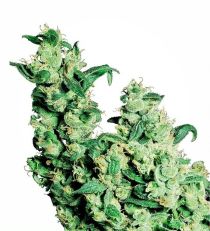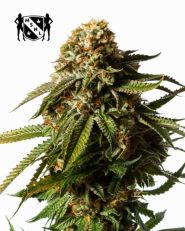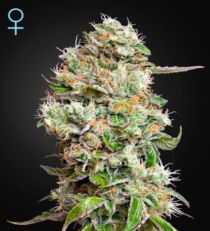 King's Kush Auto CBD Feminized by Green House Seeds By Green HouseFrom: US$33.00
King's Kush Auto CBD Feminized by Green House Seeds By Green HouseFrom: US$33.00- THC: Less than 10%
- Yield: Over 600gr/m²
- Flowering Time: 8-10 Weeks
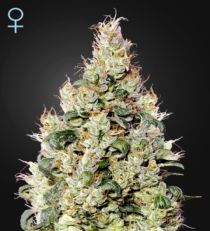 Exodus Cheese Auto CBD Feminized by Green House Seeds By Green HouseFrom: US$33.00
Exodus Cheese Auto CBD Feminized by Green House Seeds By Green HouseFrom: US$33.00- THC: Less than 10%
- Yield: 500-600gr/m²
- Flowering Time: 8-10 Weeks
 CBD Critical Cure Feminized - Barney's Farm By Barneys FarmFrom: US$31.01
CBD Critical Cure Feminized - Barney's Farm By Barneys FarmFrom: US$31.01- THC: Less than 10%
- Yield: 500-600gr/m²
- Flowering Time: 8-10 Weeks
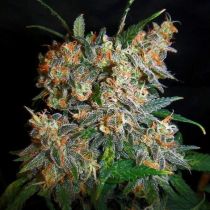 Aurora Indica Feminized – NirvanaFrom: US$23.10
Aurora Indica Feminized – NirvanaFrom: US$23.10- THC: 15%-18%
- Yield: 400-500gr/m²
- Flowering Time: 8-10 Weeks
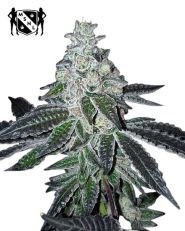 Gelato Auto Feminized by MSNL Seeds By MSNL SeedsFrom: US$69.10
Gelato Auto Feminized by MSNL Seeds By MSNL SeedsFrom: US$69.10- THC: 20%-24%
- Yield: 400-500gr/m²
- Flowering Time: 8-10 Weeks
NEW IN Northern Lights Autoflower by MSNL Seeds By MSNL SeedsFrom: US$69.10
Northern Lights Autoflower by MSNL Seeds By MSNL SeedsFrom: US$69.10- THC: 10%-15%
- Yield: 200-300gr/m²
- Flowering Time: 8-10 Weeks
NEW IN
Medical Marijuana Seeds
At 420 Seeds we work with the world's best breeders and are able to supply you with the best medical marijuana seeds. Our range of medical strains containing both CBD and THC can be used for their therapeutic properties, offering relief for a range of conditions. High CBD strains are ideal for growers seeking the calming, non-psychoactive benefits. Whereas high THC strains give potent mind-highs that can be used if you want to experience the psychoactive effects that cannabis has to offer.
Read MoreWhat are Medical Seeds?
Medical cannabis seeds are specific varieties of the cannabis sativa L. genus designed to produce plants with specific therapeutic properties.
These seeds grow into plants rich in CBD and THC (the two dominant cannabinoids produced by weed), known for their medicinal benefits. Thanks to the sweeping global changes in cannabis regulations in the past decade or so, the opportunity for researchers to study the effects of different cannabis strains on specific medical conditions has increased significantly. This research has also led to the development of medical cannabis seeds, specifically bred to contain certain cannabinoids and terpenes that show great therapeutic potential.
By choosing medical seeds, you're selecting strains that are tailored to alleviate certain medical conditions and symptoms, making them a valuable choice for medicinal cannabis patients.
Does that mean seeds more often seen on the recreational market are less effective for medicinal purposes?
Not necessarily. All cannabis plants have medical benefits, but certain varieties may be better suited for specific conditions or symptoms.
CBD Medical Marijuana Seeds
CBD medical weed seeds produce buds rich in Cannabidiol (CBD), a cannabinoid praised for its therapeutic qualities without psychoactive effects.
Ideal for those seeking relief from conditions like anxiety, inflammation, and pain, high CBD strains offer the medicinal benefits of cannabis without the 'high' associated with THC. These seeds are perfect for users who want to maintain clarity and focus while managing their symptoms.
THC Medical Marijuana Seeds
THC medical cannabis seeds grow into plants with elevated levels of Tetrahydrocannabinol (THC), the primary psychoactive compound in cannabis.
High THC seeds are suited for users who benefit from the effects of Tetrahydrocannabinol, such as enhanced mood or relief from certain types of pain. THC strains can also help with conditions like insomnia and appetite loss, providing a more potent experience for medicinal users who tolerate or seek the psychoactive effects.
Balanced Medical Marijuana Seeds
Balanced medical weed seeds produce plants with prominent and varying levels of both CBD and THC, providing a more balanced therapeutic experience for patients.
These seeds are ideal for those who want to harness the benefits of both cannabinoids, without experiencing extreme effects from either one. This balance can be beneficial for conditions like chronic pain, epilepsy, and multiple sclerosis.
There is a huge range of strains available that offer differing percentages of both CBD and THC, allowing patients to fine-tune their treatment and find the perfect balance for their needs.
How to Choose Your Medical Marijuana Strain?
- Identify Your Medical Needs: Look at the symptoms or conditions you aim to treat with medical cannabis, such as chronic pain, anxiety, insomnia, epilepsy, or multiple sclerosis. This step is crucial in determining which cannabinoid profile might be most beneficial for you.
- Seek Professional Advice: Consult with a healthcare provider or a knowledgeable dispensary staff member who can offer insights based on your medical history and health goals. They can provide personalized strain recommendations.
- Consider THC/CBD Ratios: Understand the importance of THC (tetrahydrocannabinol) and CBD (cannabidiol) ratios. For managing pain or inflammation without a strong psychoactive effect, look for strains with higher CBD-to-THC ratios. Conditions requiring more potent symptom relief might benefit from a higher THC content.
- Research Strain Types: Familiarize yourself with the three primary types of cannabis strains - Indica, Sativa, and Hybrids. Indica strains are often associated with relaxation and may help with sleep, while Sativa strains may boost energy and creativity. Hybrids balance the two and can be tailored to address specific health concerns.
- Start Low and Go Slow: If you are new to medical cannabis, choose strains with a lower THC content to begin with and gradually adjust based on how your body responds. This can help reduce the chances of any potential side effects.
- Consider Consumption Method: The way you consume your medical weed (smoking, vaping, edibles, tinctures, topicals) can affect the onset and duration of effects. Some methods may be more suitable for your lifestyle and medical needs.
- Keep a Journal: Document your experiences with different strains, including the type, dosage, method of consumption, effects, and side effects. This record-keeping can be invaluable in refining your treatment plan and selecting the most effective strains for your needs.

